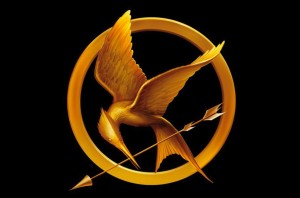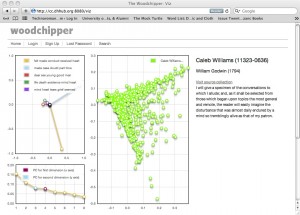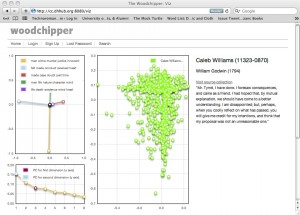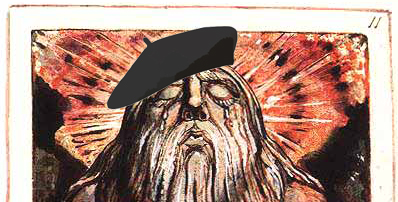How revolutionary is the revolution in The Matrix? It would seem not very. According to the end of the film, Neo intends to reenter the matrix, teaching the people there to break free of the rules and boundaries of the world in which they live. However, the possibility of completely freeing everyone from the matrix and of taking down the big bad AI seems to be impossible. Well, let me rephrase that. It is not impossible. However, it would most likely result in the deaths of millions of people. In fact, Morpheus himself alludes to this fact when he apologizes to Neo for pulling him from the Matrix, stating that he has a rule wherein he normally does not release people over a certain age from the matrix since it gives too great a shock to their system. Since we can assume that Neo is in his late twenties, perhaps early thirties in this film, the age limit on who can be saved seems to be relatively low. If he directly attacked the matrix, he would risk killing millions. So, which is better—leaving people in the matrix, living false, but probably relatively contented lives, or releasing them into a cold, harsh world with no sunlight and most likely not enough resources to support them? The Matrix, while alluding to the presence of a reality, does not really make that reality a viable option for the majority of humanity. If they are freed, people will just be substituting one “prison” for another. This “revolution” seems to be doomed from the start.
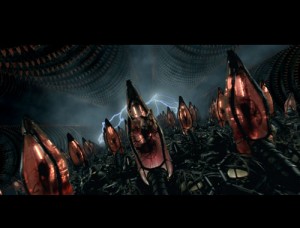
Another key element working against the success of this “revolution” is the fact that Neo’s ability to fight the matrix and the AI is linked inextricably to the matrix. After making his threat against the AI and causing a mysterious system failure, he flies off into the sky. He does not return to the ship to begin the fight against the machines on the outside. Rather, he seems to choose the fight from within. One gets the sense at the end of the film that perhaps instead of demolishing the matrix, which I have already proven to be quite problematic, Neo is fighting to take down the AI (the dictator) in order to replace it with a new, supposedly better form of leadership—one which will allow people to exist in “a world without rules and controls, without borders or boundaries. A world where anything is possible” (The Matrix). The promise of getting people backto the real is undermined by the impossibility of this task from the start. So, Neo turns to plan B, which seems to be just another story about revolution that simply manages to replace one evil with a slightly lesser evil. People may be able to move freely in the matrix, but they will still be trapped there, separated from the real.
This aspect of The Matrix brought to mind the third book of The Hunger Games Trilogy. **SUPER MAJOR SPOILER ALERT** After becoming the face of the revolution against the domineering Capitol—in much the same way that Neo is supposedly the face of the revolution against the matrix—Katniss begins to question the ultimate outcome of the cause. President Coin suggests a final Hunger Games (games involving children between the ages of 12 and 18 chosen from each district—one boy, one girl—to fight to the death initially created to discourage dissent and rebellion amongst the 12 districts). However, this time, Coin wants to draw from a pool of the children of major politicians of the Capitol (children that were always immune from participation prior to the rebellion). The revolution was meant to stop the horrors of the Hunger Games. Overthrowing President Snow and replacing him with President Coin was supposed to stop the treachery happening within the Capitol. It is at this moment that Katniss asks herself “Was it like this then? Seventy-five years ago? Did a group of people sit around and cast their votes on initiating the Hunger Games?” (370). She suddenly realizes that “All those people I loved, dead, and we are discussing the next Hunger Games in an attempt to avoid wasting life. Nothing has changed. Nothing will ever change now” (370).
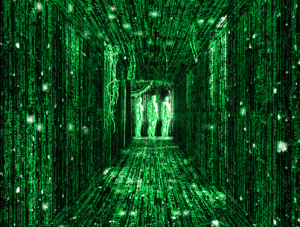
For those of us who have only watched the first film, we cannot know whether or not a similar fate will befall Neo. Will he suddenly realize the futility of destroying the matrix? Perhaps he has already since we see him plugging back in and flying away at the end of the film. Even if he manages to enact a change of power within the matrix, usurping the AI, will he ultimately have to say to himself, “Nothing has changed,” because the matrix still exists? In either possible ending, the majority of people will still be trapped in the symbolic and unable to access the “real”—making this revolution seem not very revolutionary.
Works Cited:
Collins, Suzanne. Mockingjay. New York: Scholastic, 2010. Print.
The Matrix. Produced, Directed, and Written by Andy Wachowski and Larry Wachowski. Perf.
Keanu Reeves, Laurence Fishburne, and Carrie-Anne Moss. Warner Home Video, 1999.
DVD.


